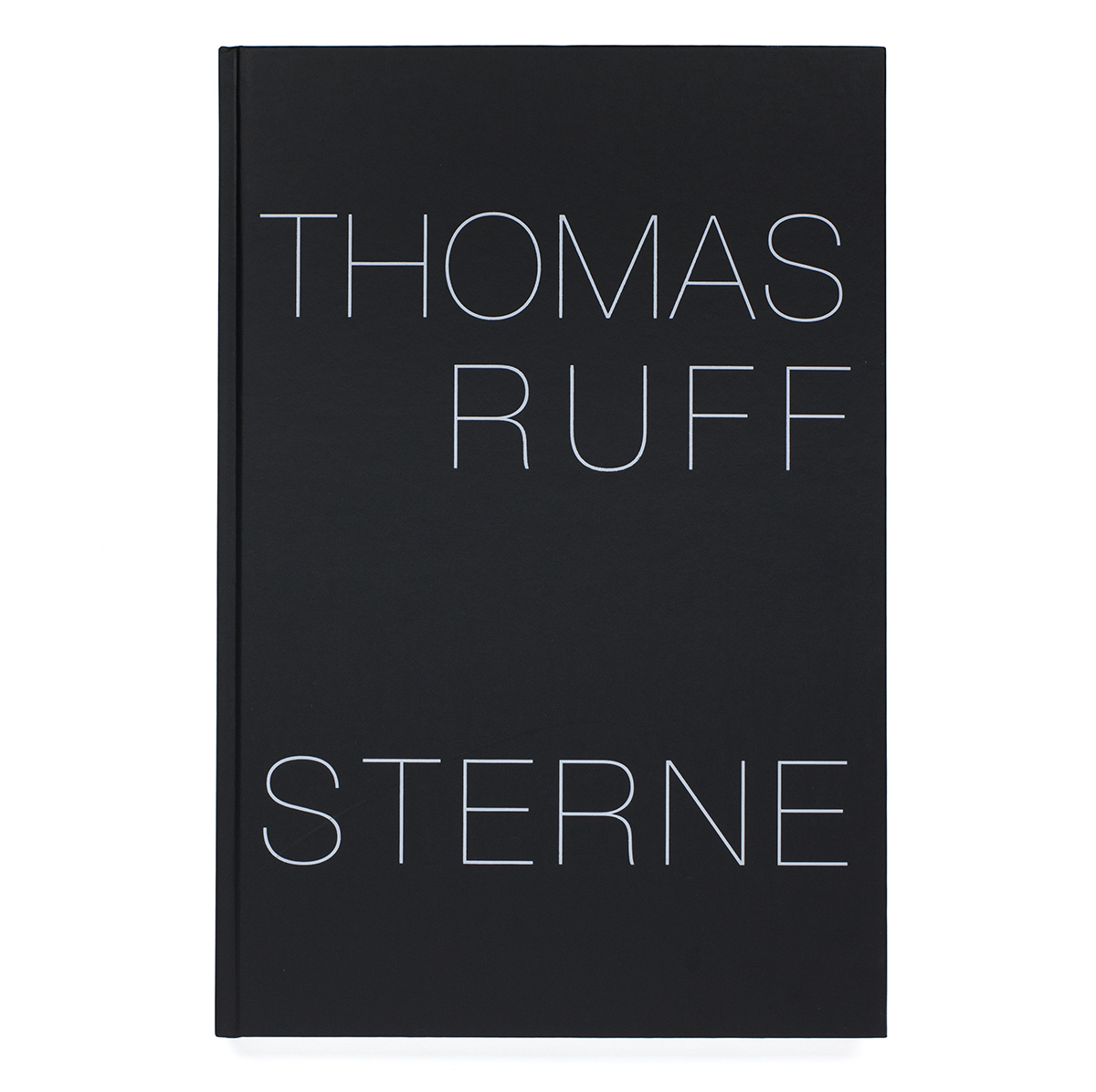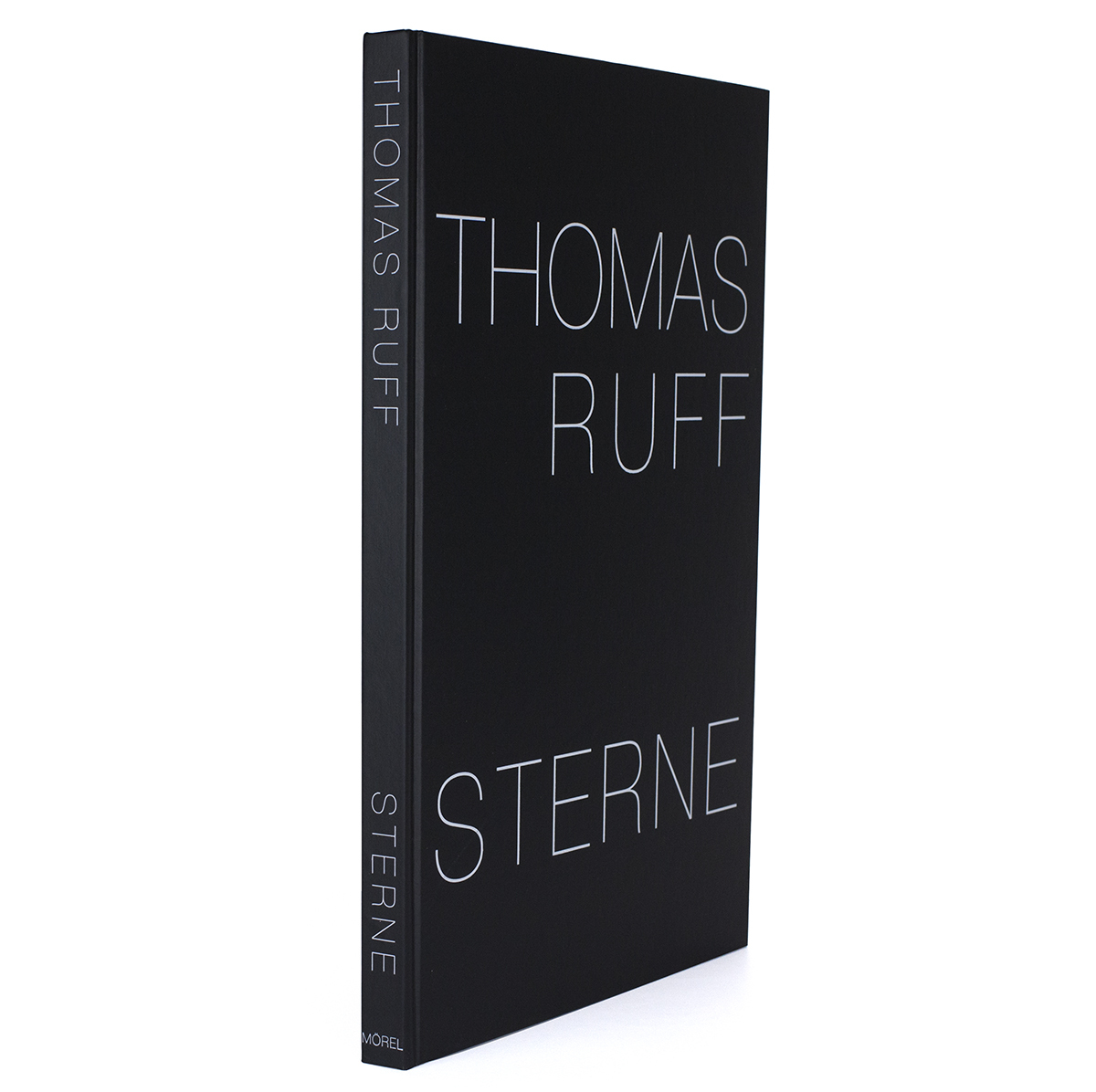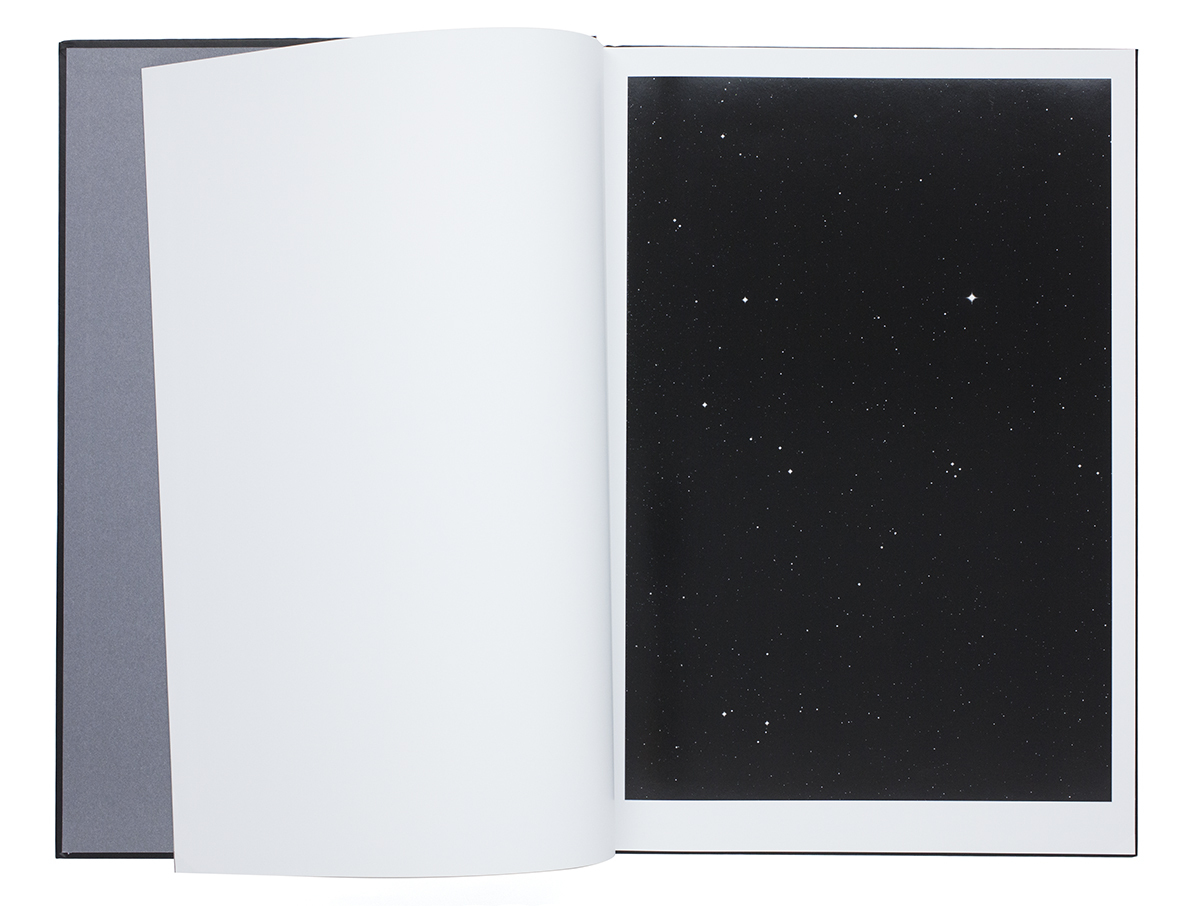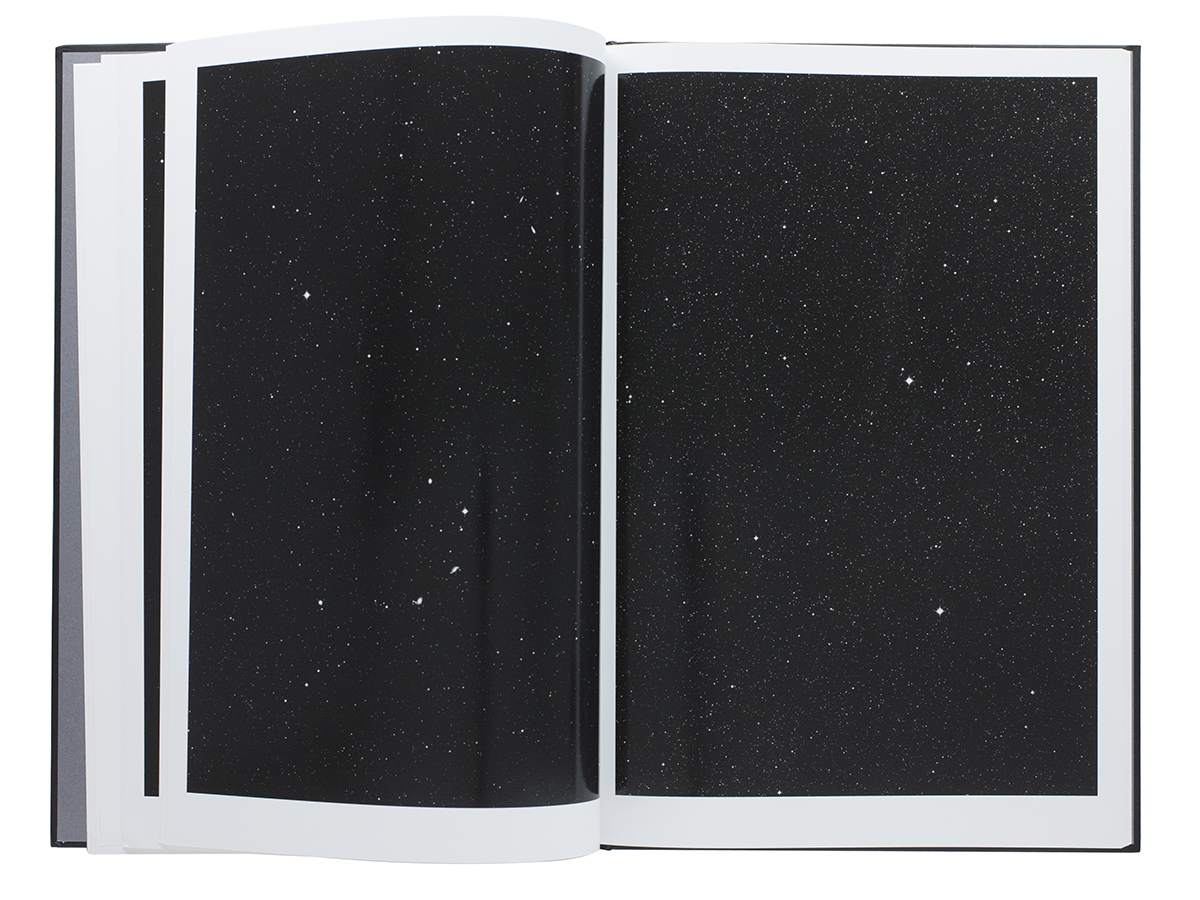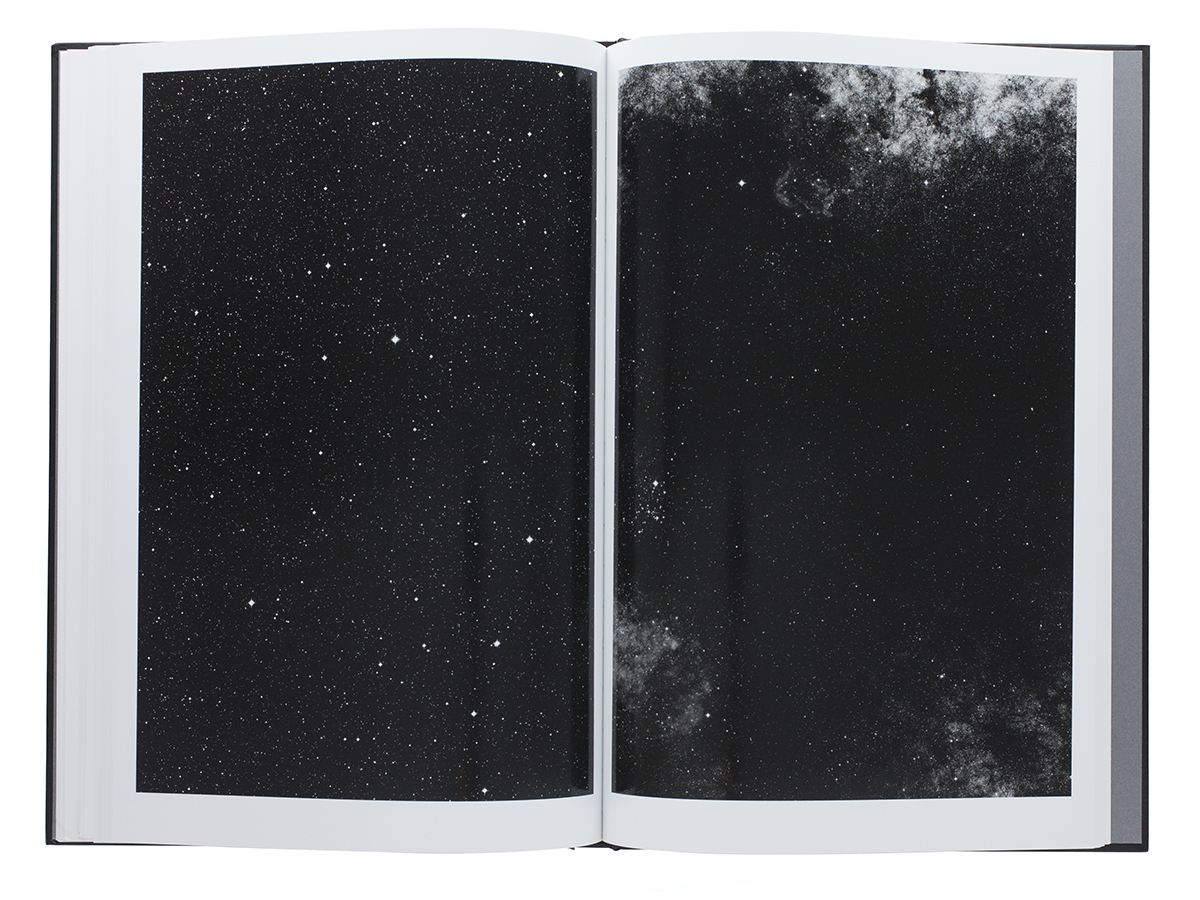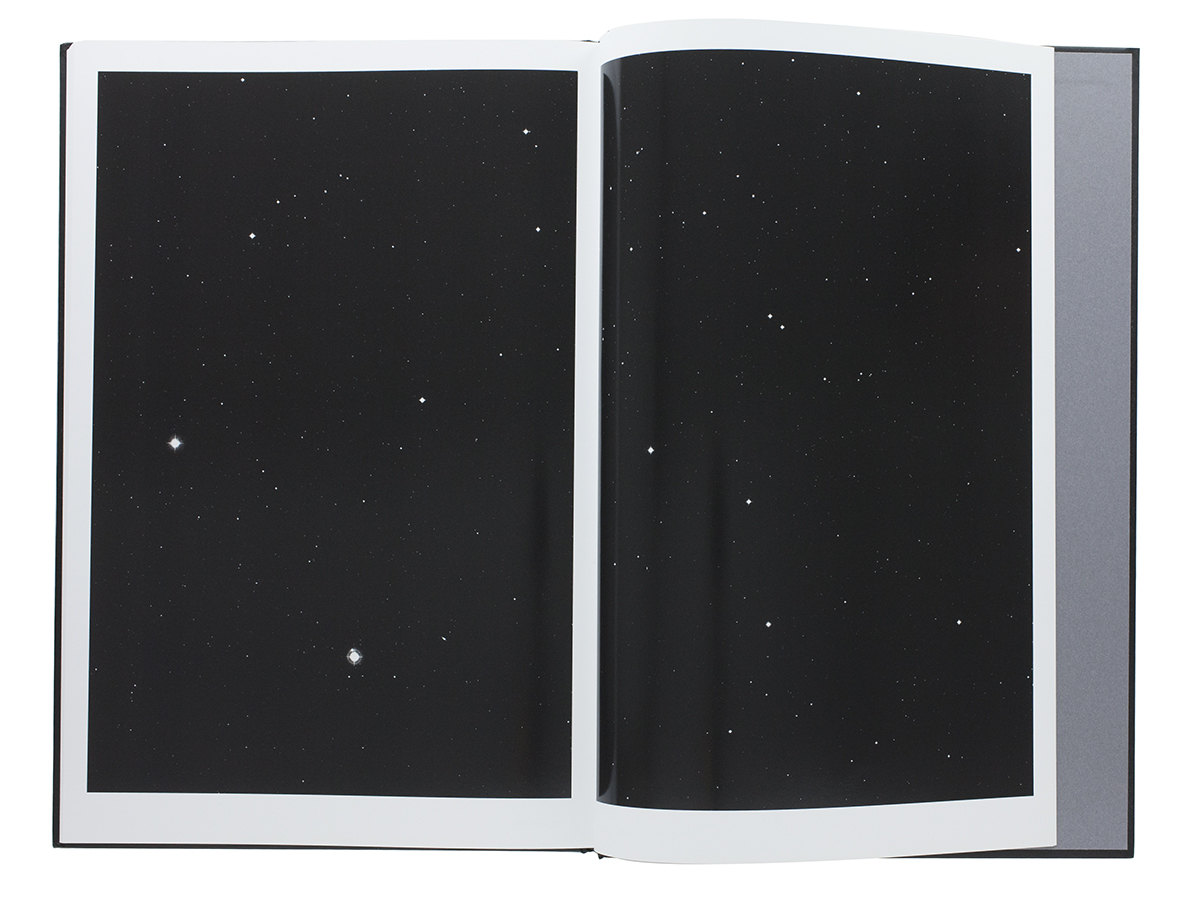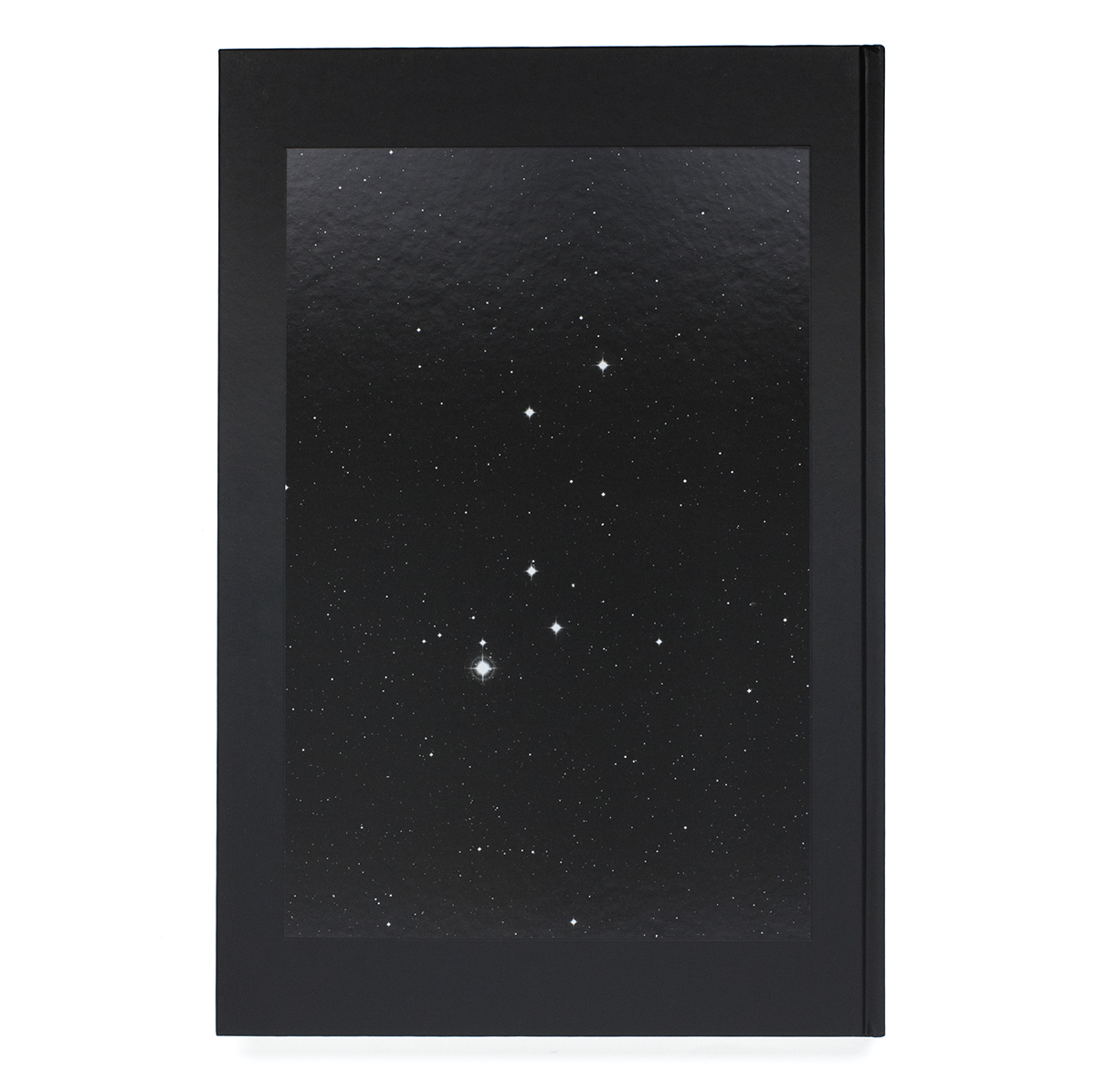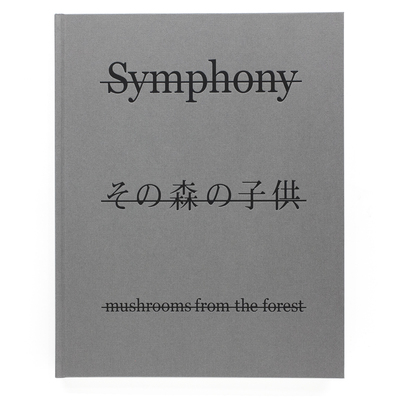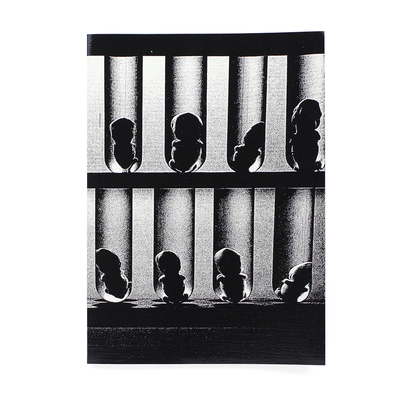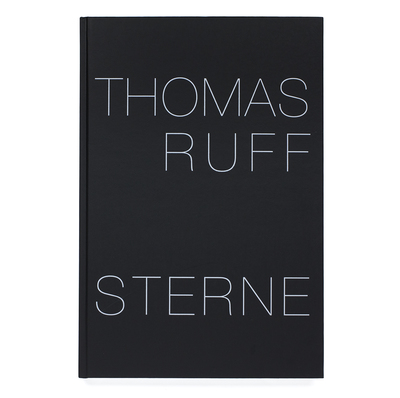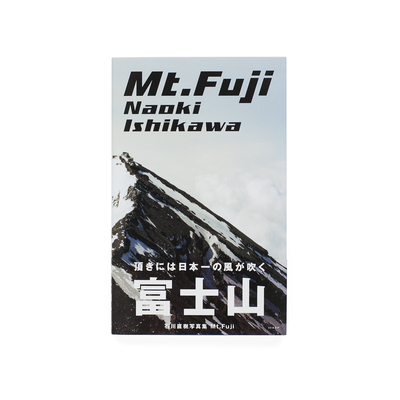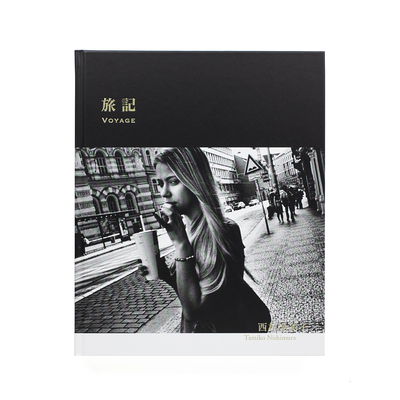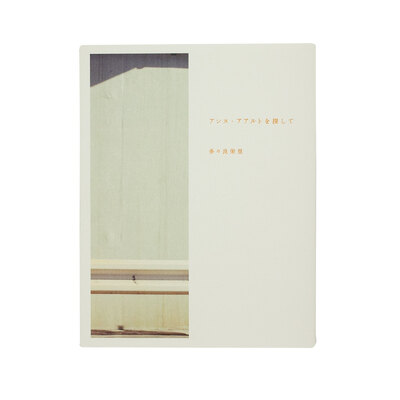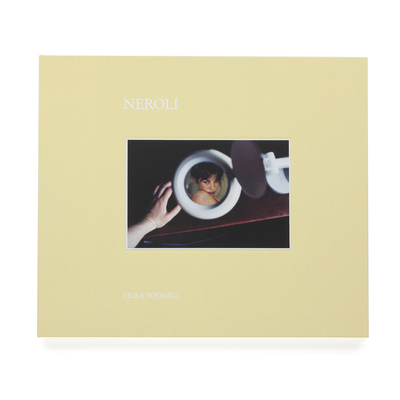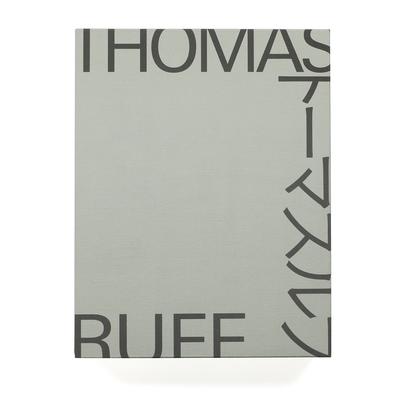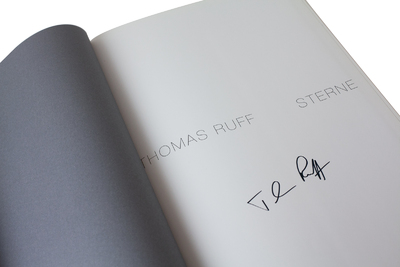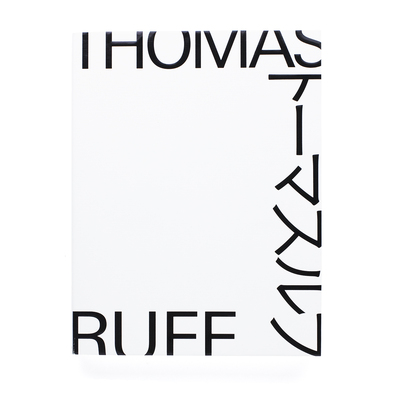STERNE
STERNE
Thomas Ruff has always had a fascination with astronomy. His attempt at photographing the night sky failed due to the lack of detail captured in the pictures taken. Ruff's equipment could not render the detail he wanted as well as air and light pollution added to the difficulties of capturing the beautiful constellations. Ruff's solution was to take observation shots from the European Southern Observatory (ESO) based in the Andes in Chile.
Ruff talked briefly about STERNE in a 1993 interview with Philip Pocock:
Pocock: Why stars? Do they mean something extra special to you?
Ruff: When I was eighteen I had to decide whether to become an astronomer or a photographer. I also wanted to move the so-called künstlerische Fotografie boundary. Do you know Flusser?
Pocock: No.
Ruff: He defines isolated categories for photography that sometimes cross over. For example, if medical photography is used in a journalistic way, or with the Stars, a scientific archive isn't used for scientific research but for my idea of what stars look like. It's also a homage to Karl Bloßfeldt. In the twenties he took photographs of plants to explain to his students architectural archetypes. So he was a researcher but the way he represented his intention with the help of photography made him an artist. I like these crossovers.
The publication brings together for the first time the full 164 plates from the STERNE series which were carefully scanned for the publication.
― Statement from publisher
$67.47
Out of Stock
- Book Size
- 370 x 250 mm
- Pages
- 160 pages
- Binding
- Hardcover
- Publication Date
- 2014
- Language
- English
- Edition
- 1000
